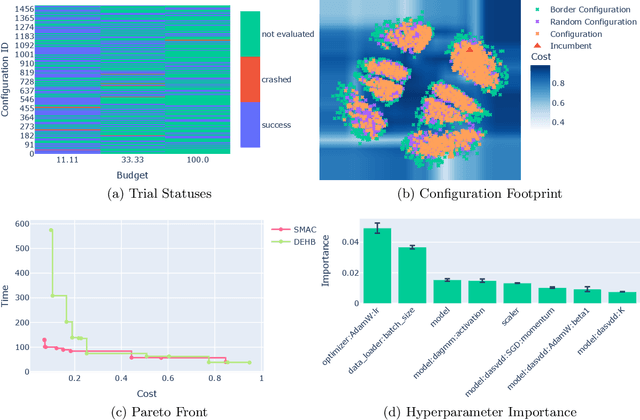Eddie Bergman
CANDID DAC: Leveraging Coupled Action Dimensions with Importance Differences in DAC
Jul 08, 2024



Abstract:High-dimensional action spaces remain a challenge for dynamic algorithm configuration (DAC). Interdependencies and varying importance between action dimensions are further known key characteristics of DAC problems. We argue that these Coupled Action Dimensions with Importance Differences (CANDID) represent aspects of the DAC problem that are not yet fully explored. To address this gap, we introduce a new white-box benchmark within the DACBench suite that simulates the properties of CANDID. Further, we propose sequential policies as an effective strategy for managing these properties. Such policies factorize the action space and mitigate exponential growth by learning a policy per action dimension. At the same time, these policies accommodate the interdependence of action dimensions by fostering implicit coordination. We show this in an experimental study of value-based policies on our new benchmark. This study demonstrates that sequential policies significantly outperform independent learning of factorized policies in CANDID action spaces. In addition, they overcome the scalability limitations associated with learning a single policy across all action dimensions. The code used for our experiments is available under https://github.com/PhilippBordne/candidDAC.
DeepCAVE: An Interactive Analysis Tool for Automated Machine Learning
Jun 07, 2022

Abstract:Automated Machine Learning (AutoML) is used more than ever before to support users in determining efficient hyperparameters, neural architectures, or even full machine learning pipelines. However, users tend to mistrust the optimization process and its results due to a lack of transparency, making manual tuning still widespread. We introduce DeepCAVE, an interactive framework to analyze and monitor state-of-the-art optimization procedures for AutoML easily and ad hoc. By aiming for full and accessible transparency, DeepCAVE builds a bridge between users and AutoML and contributes to establishing trust. Our framework's modular and easy-to-extend nature provides users with automatically generated text, tables, and graphic visualizations. We show the value of DeepCAVE in an exemplary use-case of outlier detection, in which our framework makes it easy to identify problems, compare multiple runs and interpret optimization processes. The package is freely available on GitHub https://github.com/automl/DeepCAVE.
 Add to Chrome
Add to Chrome Add to Firefox
Add to Firefox Add to Edge
Add to Edge